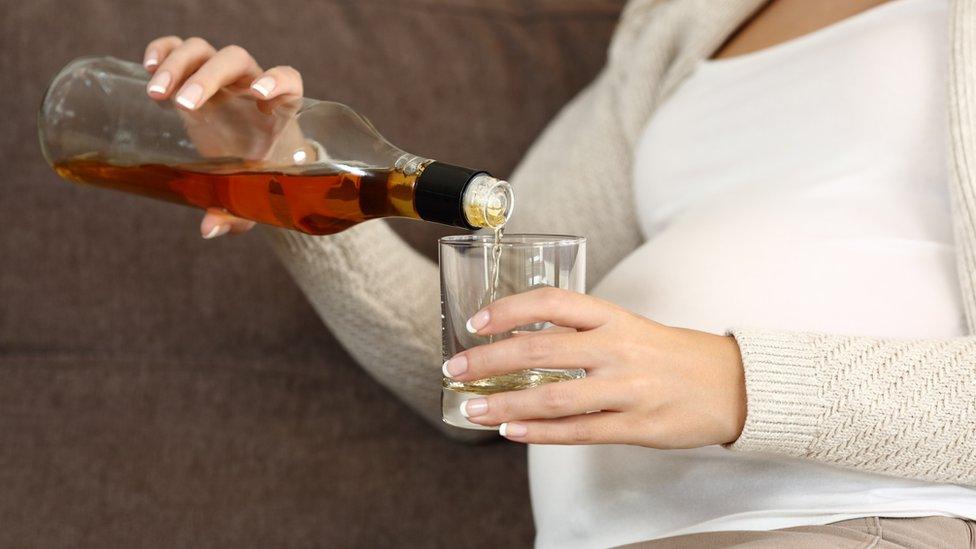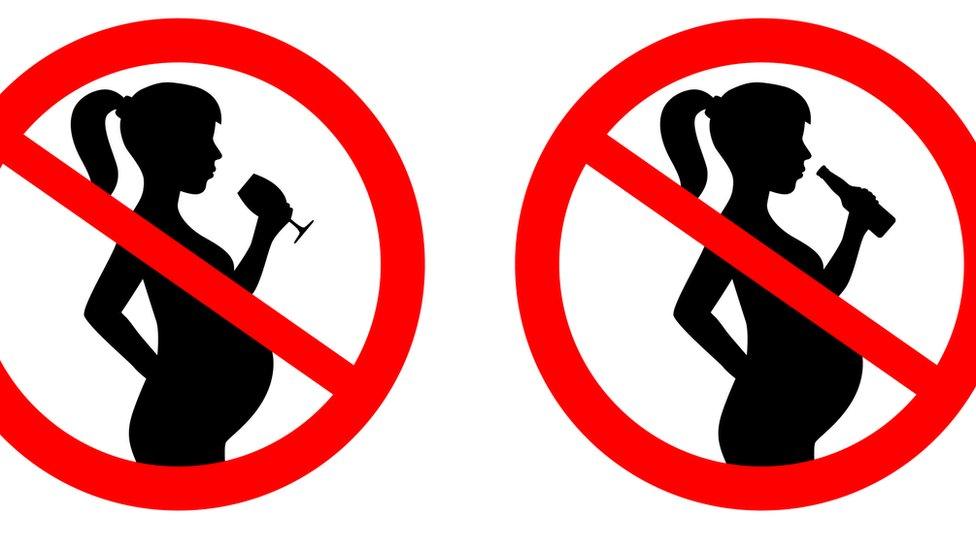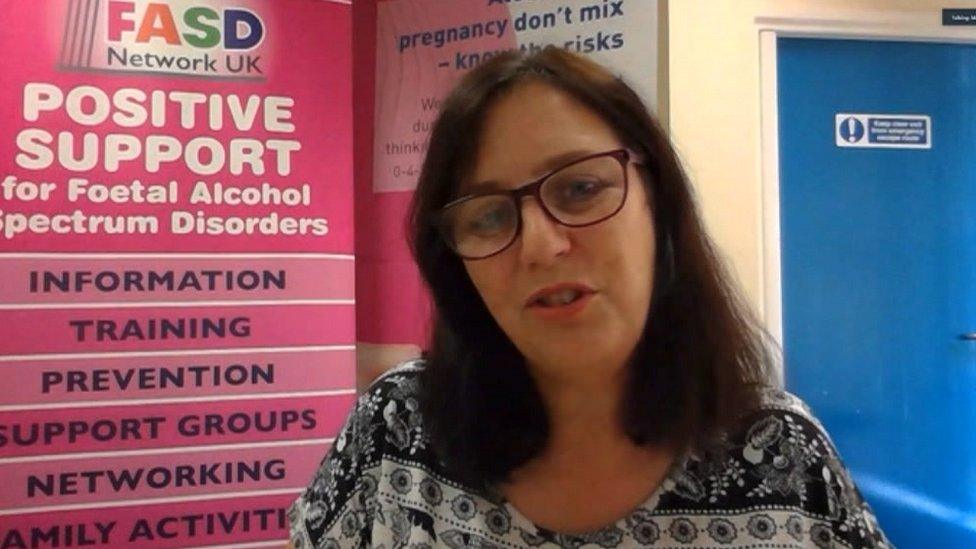Mother urges alcohol dependent mums to seek help
- Published

Alcohol can damage a developing baby in the womb
A mother has urged expectant mums with alcohol dependency to seek help after her own child was born with severe birth defects.
Charlotte, from West Yorkshire, said there was "no shame" in getting the right help to stop drinking.
The mother-of-five sought and received specialist help to detox when she discovered she was pregnant in 2018.
However, her daughter was born with Foetal Alcohol Spectrum Disorder (FASD).
FASD is the name for various issues that can affect children when the mother has drunk alcohol during her pregnancy.
Charlotte's daughter has a congenital hole in the heart, her heart also beats faster than normal, she has a full cleft palate, an eye defect and a raised diaphragm.
"As women it's our job to keep our own baby's safe, to grow them, to protect them, it's a very strong instinct and when addiction and alcohol dependency conflicts with that it's the worst feeling in the world, I wouldn't wish it on anybody," said Charlotte.
She said the moment she realised she was pregnant she sought help and spoke to an alcohol misuse midwife.
"She was so reassuring on the phone, I think her words were 'this is my bread and butter and we are going to get you through'."
To have stopped drinking without professional help could have endangered her life and Charlotte said any other woman in her position should get the appropriate medical help.
"The best thing you can do for yourself and your unborn baby is to seek help and you will get all the care and support that you need," she said.
Charlotte's experience is being highlighted on Foetal Alcohol Spectrum Disorder Awareness Day on 9 September - the ninth day of the ninth month of the year to raise awareness of having an alcohol-free nine months of pregnancy .

Foetal Alcohol Spectrum Disorder

UK medical officers advice woman not to drink alcohol throughout their pregnancy
Is the name for all the various problems that can affect children if their mother drinks alcohol in pregnancy
Issues can occur because alcohol in the mother's blood passes to her baby through the placenta
The growing baby cannot process the alcohol as well as an adult, which means it can damage cells in the baby's brain, spinal cord and other parts of the body
The problems caused are permanent, though early treatment and support can help limit their impact on an affected child's life.
Source: NHS


Maria Catterick, from the FASD Network UK, says there is no way of knowing how a child's development might be affected
Maria Catterick, director of FASD Network UK, said: "This is a potentially a preventable disability yet thousands of children each year are born with the effects and it's a lifelong condition."
Medical advice is that women should not drink at all during pregnancy.
"The challenge we've got is there's no way to know who is going to be the most vulnerable baby," said Ms Catterick. "No two children are affected in the same way."
'Terrible thing'
Charlotte has been in recovery for three years, but the impact on her daughter will be life-long.
"It's the most terrible thing as a mum to do that damage to your unborn baby, and then to have to relive the effects of alcohol afterwards, but she is the most wonderful little girl and she has overcome so much and I am very proud of her," she said.
Charlotte said it was hard not to feel guilt, but that would not benefit her or her child.
"From the minute she was born I look at her as my little girl," she said.
"I wouldn't have wished any of the things she's had to go through onto her, but also I wouldn't change anything about her."

Follow BBC Yorkshire on Facebook, external, Twitter, external and Instagram, external. Send your story ideas to yorkslincs.news@bbc.co.uk or send video here.